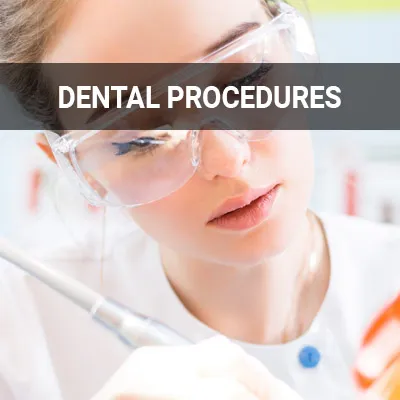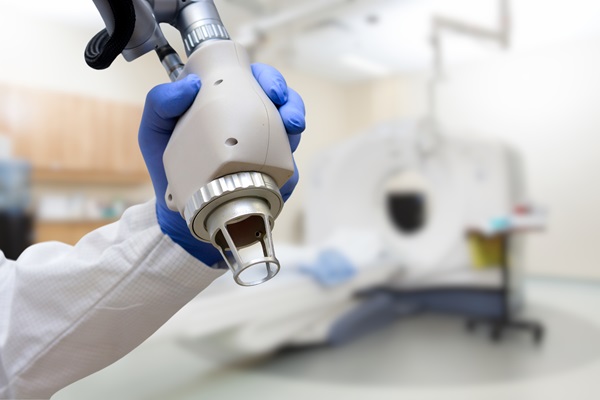Root Scaling and Planing Downey, CA
Patients with gum disease can benefit from root scaling and planing. This treatment is a key part of restoring healthy gums and teeth. Root scaling and planing treatments can combat the harmful effects of gum disease and keep your mouth healthy.
Root scaling and root planing treatments are available at Amir Sanjabi Dental in Downey and the surrounding area. Our team can help improve your oral health. Call us at (562) 399-9243 to learn more about our services or schedule an appointment.
An Overview of Root Scaling and Planing
Root scaling is a periodontal treatment that deep cleans the gums. This treatment is more extensive than the routine cleaning during a regular dental check-up. We will remove all plaque, bacterial toxins, and tartar deposits from the teeth and root surfaces during the procedure. A dental scaler or ultrasonic instrument can also assist in clearing the bacterial buildup.
For even deeper cleaning, patients can also have a root planing treatment. During root planing, we will clean under the gum line to remove plaque and tartar. The root surface of the gums is smoothed and treated to keep gum disease from progressing. These non-surgical procedures aim to remove bacteria from the gum and root with patients with deep periodontal pockets.
” These non-surgical procedures aim to remove bacteria from the gum and root with patients with deep periodontal pockets.”
When To Receive Root Scaling and Planing
We recommend root scaling and root planing to combat chronic periodontal disease, also known as gum disease. Patients with receding gums can also benefit from this treatment. During a routine dental examination, we will assess the patient's gum line and periodontal pockets. Deep pockets may indicate signs of periodontal disease and necessitate root scaling or planing.
Without root scaling or root planing treatment, people with periodontal disease can suffer additional oral and overall health problems. Eventually, the bacteria from diseased gums can lead to receding gums, tooth loss, bone loss, or loose teeth. Root scaling and planing can help repair some of the damage and prevent further gum damage. Additional treatments may be necessary in cases where the periodontal pockets have become deeper.
“Without root scaling or root planing treatment, people with periodontal disease can suffer additional oral and overall health problems.”
Preparing for Root Scaling and Planing
Dental providers may divide root scaling and planing into two appointments. During the first appointment, the dentist cleans one side of the patient's mouth. They might save the other side of the mouth for the patient's second visit. Splitting the procedures up may help reduce patient discomfort. Before starting treatment, the dental team provides a numbing medication. Next, they remove plaque and tartar along the base of the teeth. The dental provider works between teeth and below the gum line, too. They may use a manual tool like a metal scraper, or they may opt for an ultrasonic instrument.
The dental provider works in vertical, horizontal, and circular motions to remove debris along each side of the tooth. The provider also performs root planing to smooth the surface of the tooth. Planing can prevent gum disease relapses. By smoothing the teeth, the provider eliminates places where bacteria and plaque can hide. Finally, the provider flushes away debris and bacteria. They may provide an antiseptic rinse or antibiotics to help the patient's mouth heal. The dental team also uses gentle pressure to help gums reattach to the teeth.
“By smoothing the teeth, the provider eliminates places where bacteria and plaque can hide.”
Check out what others are saying about our dental services on Yelp: Root Scaling and Planing in Downey, CA
Benefits and Drawbacks of Root Scaling Treatment
One of the biggest benefits of root scaling and root planing is that it helps prevent further gum disease. After treatment, patients will have cleaner mouths with fewer gum problems and cavities. Healthier gums feel less tender and will not bleed while flossing or brushing.
Root scaling and planing may not be the best treatment option for everyone. Patients who do not commit to excellent oral hygiene habits may not see as many benefits in the future. Additionally, immunocompromised individuals or patients with severely receding gums may not be candidates for the treatment.
“One of the biggest benefits of root scaling and root planing is that it helps prevent further gum disease.”
Questions Answered on This Page
Q. What are root scaling and root planing?
Q. When are root scaling and root planing necessary?
Q. What are the benefits and drawbacks of root scaling?
Q. What aftercare should occur after treatment?
Q. How should I prepare for root scaling and planing?
People Also Ask
Q. Is increased sensitivity to temperature a sign that endodontic surgery is necessary?
Q. Am I at high risk for developing oral cancer?
Q. What is the difference between endodontists and dentists?
Q. What are some common signs of receding gums?
Q. How can you save a tooth with a root canal?
Q. What are the risk factors for oral cancer?
Q. Are pain and tenderness when touching the teeth or chewing a sign of a problem?
Treatment Aftercare
Gum sensitivity is normal during the first few days after this deep cleaning treatment. The gums may be tender, swollen, and even bleed. We recommend that patients gently brush their teeth and use wax-coated floss. They should also periodically rinse their mouth with warm salt water or an oral rinse to prevent infection.
A follow-up appointment is necessary so that we can check for gum improvement. If the gums are firm and pink again and the pockets are smaller, patients may not need further treatment. People can then schedule regular dental check-ups to maintain gum and oral health.
“If the gums are firm and pink again and the pockets are smaller, patients may not need further treatment.”
Frequently Asked Questions
Q. Is root scaling and planing painful?
A. Dental providers use numbing medication to prevent patients from feeling discomfort during treatment. Afterward, patients may experience sore or tender gums. However, these side effects usually disappear within a few days.
Q. How long will it take for my gums to recover?
A. Most patients make a full recovery within 1-2 weeks. Keep in mind that some patients may need frequent scaling and planing. Annual or biannual procedures can prevent gum disease from returning. Our team can determine whether you need ongoing treatment.
Q. How long does the procedure last?
A. Root scaling and planing usually take 1-2 hours. The dental provider may perform the treatment in one visit, or they may split the procedure into two stages. Our team can determine the right treatment schedule for you.
Q. What are the risks of root scaling and planing?
A. Most patients are eligible for root scaling and planing procedures. However, this treatment may not be right for patients with bleeding disorders or compromised immune systems. Patients with severe tooth decay or oral infections may benefit from a different treatment. Our team can determine whether you are a candidate for root scaling and planing.
Q. How can I know if I need this procedure?
A. Root scaling and planing can treat an advanced form of gum disease known as periodontitis. Periodontitis symptoms may include:
- Swollen gums
- Red or purplish gums
- Gum bleeding
- Bad breath
- Visible pus along the gumline
Untreated periodontitis can result in tooth loss, receding gums, and widespread infection. Researchers have also found that patients with periodontitis are at a higher risk for heart disease and dementia. Treatment helps patients resolve gum disease and other issues that may occur from gum disease.
Periodontic Terminology
Call Us Today
If you have gum disease, root scaling and planing can help reverse this issue. Our team at Amir Sanjabi Dental can help. Call us today at 562-399-9243 to learn more about our services or schedule an appointment.
Helpful Related Links
- American Dental Association (ADA). Glossary of Dental Clinical Terms. 2024
- American Academy of Cosmetic Dentistry® (AACD). Home Page. 2024
- WebMD. WebMD’s Oral Care Guide. 2024
About our business, license, and website security
- Amir Sanjabi Dental was established in 2018.
- We accept the following payment methods: American Express, Cash, Check, Discover, MasterCard, and Visa
- We serve patients from the following counties: Los Angeles County
- We serve patients from the following cities: Downey, South Gate, Paramount, Bellflower, Norwalk, Santa Fe Springs, Bell Gardens, Lynwood, Pico Rivera and Whittier
- CA (License #100612). View License Information and Specifics
- National Provider Identifier Database (1992259592). View NPI Registry Information
- Norton Safe Web. View Details
- Trend Micro Site Safety Center. View Details
Back to top of Root Scaling and Planing
















